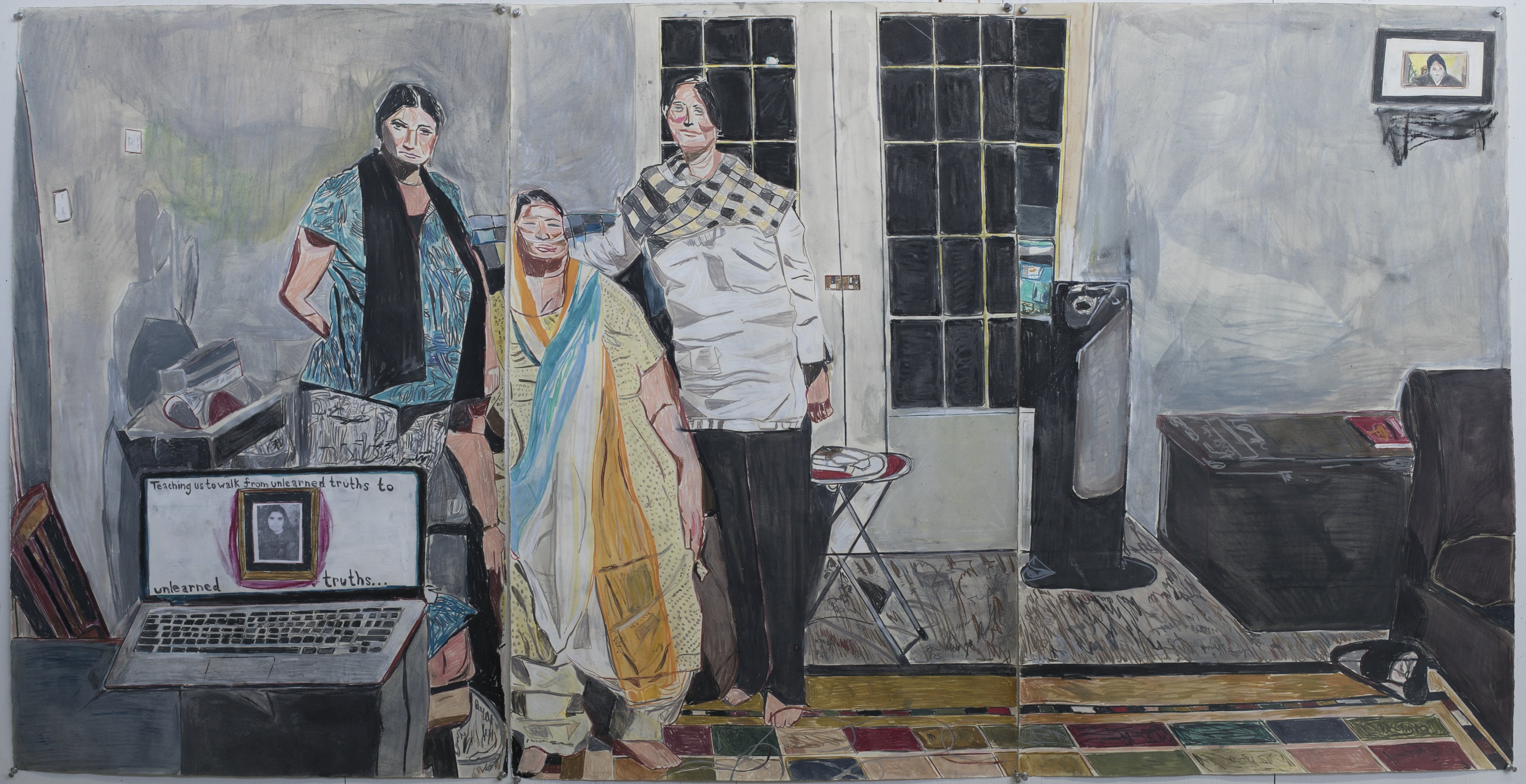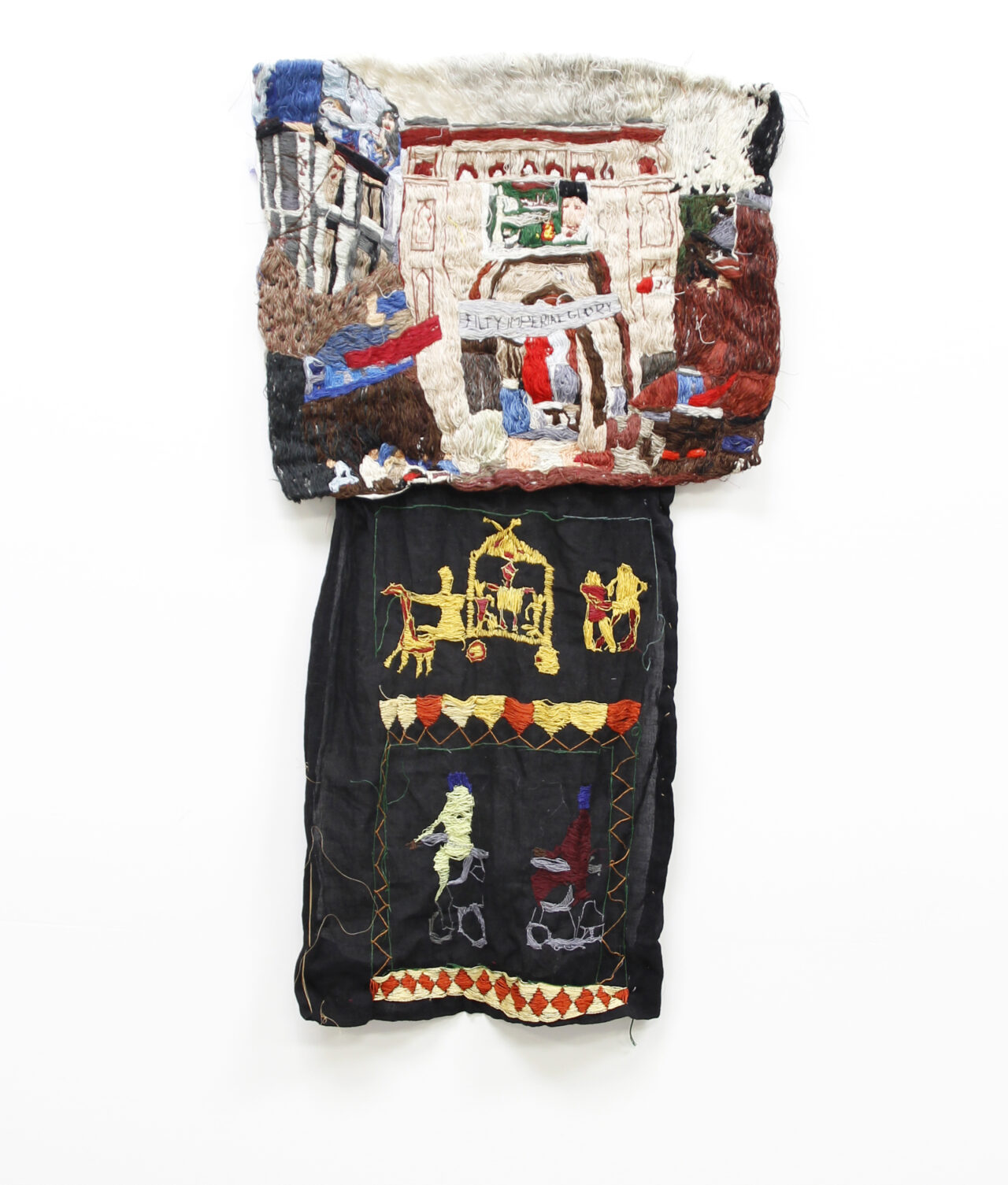Jagdeep Raina Transforms Lost Histories Into Living Archive with âeverything left unsaidâ

Jagdeep Raina, Teaching us to walk from unlearned truths to unlearned truths part 1, 2017. (Courtesy of Jagdeep Raina and Cooper Cole, Toronto)
Posted on | Updated
The exhibition, which explores questions about life in the Sikh diaspora, is being held at the Libby Leshgold Gallery at Emily Carr University.
A new solo exhibition from artist transforms archival materials into living narratives that explore questions about life in Sikh communities across the globe.
Titled , the show is currently on view at the at Emily Carr University through Feb. 26. It includes works spanning drawing, painting, embroidered textiles and animated film, produced over a period of roughly seven years. The exhibition is Jagdeepâs first in Vancouver.
The subjects of Jagdeepâs work are mined from institutional archives, oral histories, personal photo albums and even the artistâs imagination.
âMoving through the exhibition, one can see the artist aptly shift between mediums, employing a range of tools and techniques to examine his subjects from every angle,â writes Libby Leshgold curatorial assistant Troy Johnson in her introductory essay.
âTo experience Jagdeepâs work is to bear witness to the lives and histories that he has been entrusted with remembering. In the threaded shapes, the pastel and graphite markings, a material history is formed.â
This material history, Troy adds, offers a more âcomplex understandingâ of communities formed by migration.
In an essay titled âFamilies without objects, and everything left unsaid,â anthropologist Kamal Arora writes that Sikh stories of historical events have âlargely been missing and marginalized.â Historical and political turmoil â including forced migration during the Partition of India and broader volatility throughout the region â left generations of Punjabi families displaced and without possessions. Books, photos, letters, clothes and more were lost or destroyed, leaving entire communities bereft of personal and collective record.
In this context of historical loss, Jagdeepâs work serves as a vital act of remembrance.

Jagdeep Raina, Filthy Imperial Glory, 2021. (Courtesy of Jagdeep Raina and Cooper Cole, Toronto)
âHis works hum with life, vibrancy, emotion, history,â writes Kamal, an anti-racism and equity, diversity and inclusion advocate whose research focuses on gender and Sikhism.
âThings that are left unsaid are given new life. The archive is coming into being, from Kashmir to Punjab to Southall to Vancouver, and beyond. I can think of no greater gift to our transnational communities than what Jagdeep has created with his two hands.â
Jagdeep suggests his most recent works ask questions about how human care and intimacy are influenced by the ebb and flow of time.
âHow can we learn from historical memory as a way to better understand how to care for one another?â he asks. âWhat does caregiving look like in environmental and urban landscapes that feel unstable? How do we grapple with understanding the temporary ways in which communities, friendships, families, relationships come together and gradually fall apart and erode over time?â
everything left unsaid is presented in collaboration with media partner . The exhibition is on view at the Libby Leshgold Gallery at ČŦÃņēĘÆą from Jan. 13 to Feb. 26, 2023.
A public reception will take place at the gallery on Jan. 12 at 6pm. The exhibition will also include a Jan. 26 online artist conversation featuring Jagdeep Raina, Yui Kigimiya and Ami Yokoyama, and a Feb. 9 panel discussion âTracing Contours: Canadian South Asian Contemporary Arts 1990s - 2020sâ featuring Shelly Bahl, Farheeq Khan and Jordan Strom, hosted by Zool Suleman and presented by Rungh.